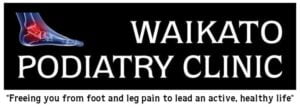Creaky Knees and Running – Mythbusters!
At Waikato Podiatry, we often hear concerns about knee pain, creaky knees, and the fear that running might damage the joints — particularly the knees. It's a common belief that running causes arthritis. However, recent research suggests that this isn't necessarily true.
In fact, a publication in the British Journal of Sports Medicine has highlighted that recreational running may actually protect your knees rather than harm them. Studies have shown that the incidence of osteoarthritis in recreational runners is around 3.5%, compared to 10% in people who are sedentary. This is a significant difference and suggests that regular, moderate activity can contribute to better joint health.
On the other hand, elite or high-volume long-distance runners do show a slightly higher incidence of knee arthritis — around 13% — likely due to the extreme loads placed on the joints over time. So while moderate running is beneficial, extreme levels of running might increase the risk of joint wear and tear.
How running can help your knees
Running, in moderation, strengthens the muscles around the knee joint, enhances bone density, improves joint lubrication, and maintains cartilage health. All these factors can contribute to reduced joint degeneration and better long-term knee function.
Key benefits include:
-
Improved joint support from stronger muscles
-
Better cartilage health due to regular, moderate loading
-
Enhanced overall mobility and balance
The critical takeaway? Regular running, done sensibly, is not only safe but can be protective for your knees.
Managing arthritic knees with the GLA:D Programme
If you are already experiencing arthritic knees, there are effective ways to manage the condition and possibly avoid surgery. One such programme is the GLA:D Programme (Good Life with osteoArthritis in Denmark), now available in New Zealand through specialists like Amanda Foster from Active Health.
The GLA:D Programme is an internationally recognised exercise-based rehabilitation approach aimed at reducing the symptoms of knee and hip osteoarthritis. It has strong evidence behind it, with tens of thousands of participants globally. Research shows it can reduce the need for knee replacement surgery by up to 35% — a remarkable outcome.
The programme focuses on:
-
Education about osteoarthritis and self-management strategies
-
Supervised neuromuscular exercises that strengthen and stabilise the joints
-
Long-term lifestyle adjustments to manage symptoms sustainably
If you want to know more about how GLA:D can help, we encourage you to reach out to Amanda Foster and the Active Health team.

Why proper diagnosis matters
Often, knee pain is wrongly attributed to generalised "arthritis" without a clear diagnosis. One common cause of pain — especially in early arthritis — is patellofemoral joint syndrome (pain behind the kneecap). This condition requires different management strategies compared to classic osteoarthritis of the tibiofemoral joint.
This is where a skilled podiatrist can make a real difference. At Waikato Podiatry, we assess:
-
Where your pain is originating (patellofemoral vs tibiofemoral)
-
How your gait and biomechanics might be contributing to the issue
-
What footwear or orthotic support could help unload the knee and improve comfort
Having a specific diagnosis is crucial. Without it, it’s nearly impossible to structure an effective, targeted treatment programme. Many people suffer for years without clear answers — but you don’t have to.
In Summary
-
Moderate running is safe for your knees and may actually protect them.
-
High-volume, elite-level running can increase the risk of arthritis.
-
Structured exercise programmes like GLA:D can greatly reduce symptoms and the need for surgery.
-
Correct diagnosis is critical to managing knee pain effectively.
-
Podiatrists can play a vital role in assessing, diagnosing, and managing lower limb and knee pain.
If you’re struggling with creaky, painful knees, or if you’re worried about the effects of running on your joints, contact Waikato Podiatry today. We’re here to help you get back to doing the activities you love — safely and comfortably.
Suffering from Creaky Knees?
Are you are feeling like you have tried everything but are still suffering from creaky knees and knee pain?
Do you feel like you have seen every health practitioner you can about your creaky knees with no results?
We have a track record of diagnosing and successfully treating cases that have previously proven difficult to resolve and we’d love to help you get the problem sorted.

